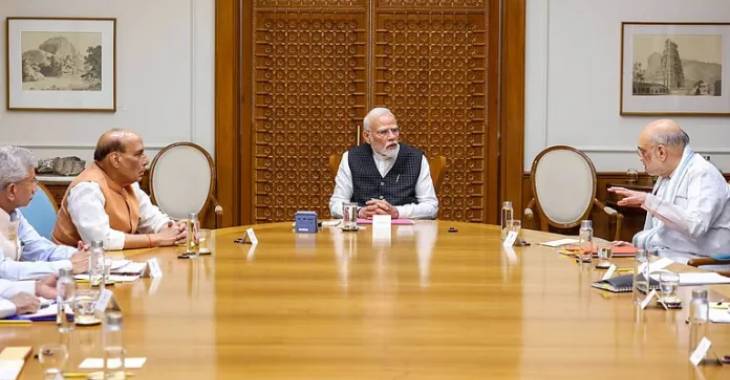India needs to take a more assertive stance on anything that has a Pakistani nexus on all global forums. Operation Sindoor has shown that the fight is one’s own and exposed global diplomacy. Standing up and firmly pointing the finger is the answer; no one else can bring it about or help.
India has risen to the occasion, showing courage and readiness to challenge those who would sabotage its development and authority, but much work remains.
India has correctly adopted a new policy of assertiveness in a world where terrorism lurks behind sovereign boundaries and diplomacy frequently devolves into delay. Operation Sindoor is more than just a military operation; it is a statement that New Delhi is determined to eradicate the root cause of terrorism rather than only dealing with its consequences.
One of the bloodiest terror attacks in recent memory occurred at Pahalgam on April 22, killing 26 people. Operation Sindoor, India’s retaliation, was prompt, calculated, and unrepentant. In addition to targeting the offenders, it marked the beginning of a more significant change in policy: India will no longer put up with cross-border terrorism and will not permit Pakistan to conceal itself under the guise of diplomacy.
Uncomfortable realities were exposed by the way the world reacted to this powerful, justified act of self-defense. The same nations who denounced the terror attack in Pahalgam, many of which claim to oppose terrorism, were notably silent on Operation Sindoor. The United States did not issue a warning to Pakistan, despite offering assistance in dealing with the offenders. New Delhi is disappointed by its abrupt shift in policy toward Pakistan.
This has highlighted one reality: India must fight its own wars and prevail on its own in a precarious global system. India has now taken the diplomatic battle worldwide, denouncing Pakistan’s hypocrisy everywhere it goes.
It was historic when Defense Minister Rajnath Singh declined to sign the joint statement during the Shanghai Cooperation Organization (SCO) conference. His outward displays of strength and outright allusions to cross-border terrorism conveyed a strong message to Beijing, which still defends Pakistan in international fora, as well as to Islamabad.
It was more than simply appearances. The China-Pakistan story was totally ruined by India’s stance at the SCO. India made it clear that the group must take a strong stand against terrorism, while China stood side by side with its “iron brother.”
India’s position since Operation Sindoor has a unique coherence and clarity. For the first time in many years, India is resisting Pakistan’s global narratives and attempts to internationalize issues on a legal, diplomatic, and economic level.
Consider the Indus Waters Treaty (IWT). India put the pact on hold after the Pahalgam incident, arguing that it was pointless to keep cordial relations with a state that still supported terrorism. India didn’t mince words when Pakistan went to the so-called Court of Arbitration in The Hague to corner India over the Treaty. It ruled that the arbitration procedure was “illegally constituted” and that the panel lacked standing under the IWT. More significantly, it called Pakistan the worldwide epicenter of terrorism and described its action as a “charade” and a diversionary strategy to avoid responsibility.
India’s new stance is straightforward but effective: Pakistan cannot win over the world by harboring terrorists on its territory. As long as it keeps up its destabilization of an entire region, it cannot be considered a responsible nation.
Even if India has begun to speak up more and act more assertively, much more work has to be done. New Delhi has depended on cautious diplomacy for far too long. Diplomacy infused with exposure, escalation, and evidence must now take its place.
It is imperative to draw attention to Pakistan’s risky double game at all international fora, including the SCO, G20, BRICS, and the UN.
And speeches aren’t the only thing involved. To guarantee that terrorism becomes a top priority in international policy discussions rather than a peripheral topic brought up only after an incident takes place, India must spearhead a coalition of like-minded countries that have experienced state-sponsored terrorism.
A new India, one that retaliates when provoked and exposes deceit when it is observed, has been established by Operation Sindoor.
However, this can’t be an isolated incident. It must develop into a zero-tolerance policy, wherein any direct or indirect engagement by Pakistan is confronted head-on and any attempt by Pakistan to interfere, accuse, or mislead is faced with facts and decisive action.
Read More
Today, the PM will kick off the celebration of Acharya Shri Vidyanand’s 100th birthday


